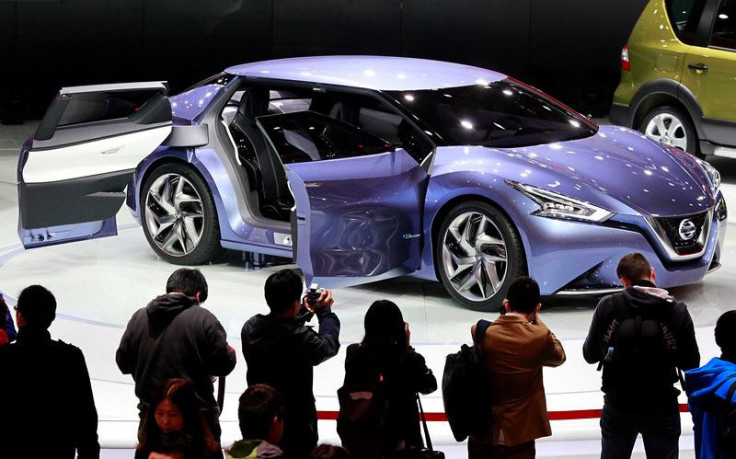Shanghai Auto Show 2013: Chinese Consumers, Like Americans, Want Giant, Gas-Sucking SUVs, If They Can Afford Them

The nine-day Shanghai auto show kicked off over the weekend in the world’s largest and fastest-growing auto market, showcasing SUVs and luxury sedans that are being embraced by the growing numbers of wealthier Chinese consumers.
Ford Motor Co. (NYSE:F) is promoting its larger, fancier Lincoln brand of vehicles, which the company is bringing to China next year.
General Motors Company (NYSE:GM) is unveiling its new Cadillac XTS and its newly styled Cadillac SRX SUV and has said it plans to release nine SUV models in China over the next five years.
Chrysler LLC, a subsidiary of Italian company Fiat SpA (Milan:F), has said it is opening a plant in the southern city of Changsha to make Jeep Cherokees.
Not to be outdone by the foreigners, all major Chinese automakers such as BYD Auto Co., Ltd., FAW Group and Dongfeng Motor Corporation have unveiled their own less costly SUVs.
“Our focus is on luxury vehicles and SUVs going forward,” Bob Socia, president of GM China told the New York Times.
This is not music to the ears of Chinese government officials, who have been promoting policies aimed at reducing carbon emissions and the country’s overall oil consumption though a series of incentives and tariffs in the marketplace. For example, the country charges hefty premiums on cars with engines larger than 4 liters.
But consumers are buying nonetheless.
SUV sales in China grew 49 percent in March compared to the previous year, according to the China Association of Automobile Manufacturers. Meanwhile, the country’s demand for electric vehicles is virtually a blip. SAIC Motor, which builds its owns cars and has a manufacturing partnership with GM, has sold only about 200 of its Roewe E50 electric vehicles since its debut in November, even with a government-backed purchase subsidy amounting to 55 percent of the car’s 234,900-yuan ($37,996) sticker price.
"Just like everywhere else in the world, China did not make any significant breakthrough” [in promoting electric and hybrid vehicle use], John Zeng, head of the Asia-Pacific for LMC Automotive, told AFP. "Firstly, the infrastructure in not there, and secondly, the consumer mind-set is not there."
Smaller, cheaper sedans are still prominently displayed at the auto show. They might not be as profitable, but they are still the fastest-growing segment, as lower-income Chinese gather enough wealth to afford their first vehicle purchase. Toyota Motor Corporation (NYSE:TM) is one of the major global players betting on smaller entry-level cars in the Chinese market. The Japanese carmaker is giving makeovers to its Vios and Yaris sedans and is hoping the demand for entry-level sedans will be strong enough for it to claw back sales it lost last year because of the political row over the Senkaku/Diaoyu territorial dispute.
© Copyright IBTimes 2024. All rights reserved.





















